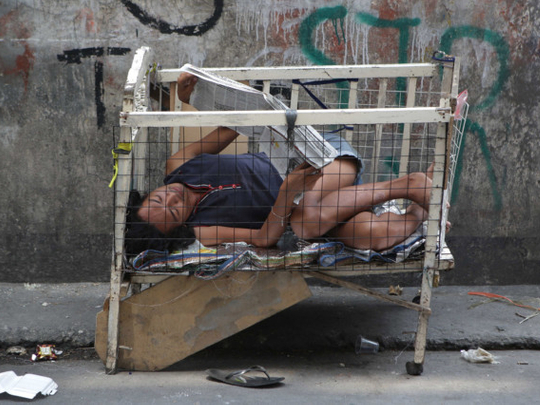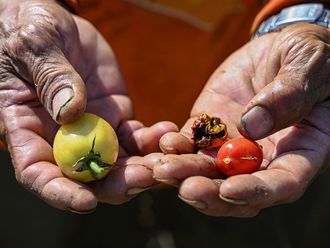
Manila: The number of Filipinos who consider themselves poor has gone up during the administration of President Benigno Aquino III, a poll by the independent Social Weather Survey (SWS) shows.
A nationwide survey conducted from December 5-8, 2015 on self-rated poverty showed that 50 per cent of the estimated 11.2 million Filipino families consider themselves as poor.
President Benigno Aquino III assumed the presidency in late June 2010.
The SWS said the steady Self-Rated Poverty rate nationwide in the fourth quarter was due to a sharp decline in Mindanao, it was however, offset by increases in Luzon, Metro Manila and Visayas.
Self-Rated Poverty fell by 19 points in Mindanao, from 70 per cent in September 2015 to 51 per cent in December 2015.
Joey Salgado, media affairs chief of the Office of Vice-President Jejomar Binay, said the SWS figures show the Aquino administration had failed to live up to its promise of uplifting the lives of the poor.
Salgado said, looking at the bigger picture from the survey, “there are more Filipinos now who describe themselves as poor compared to the beginning of the Aquino administration.”
He said based on SWS data, the number of Filipinos who described themselves as poor in 2010, within the first three months of Aquino administration, was at 48 per cent.
The figure went up to 50 per cent as of the last survey, he said.
“They cannot dispute the fact that more Filipinos consider themselves poor today that in 2010,” he added.
“Where are we at right now? Despite the economic growth the administration keeps crowing about, 10 million Filipinos are still unemployed. More and more Filipinos are forced to leave the country to find work overseas because there no job opportunities here. The cost of healthcare has risen and it is getting harder for people to get treatment in hospitals,” Salgado said.
He added that economic growth had favoured only a few.
“Millions are still poor, hungry, and unemployed.”
Salgado said the “sad reality” is that only the rich have benefitted from the country’s economic growth.
Based on figures by the World Bank, the Philippines lags behind Vietnam and Indonesia when it comes to fighting poverty.
“Economic growth is meaningless if it excludes the poor and working class Filipinos. We have claims of growth in the midst of unmitigated poverty, unemployment and hunger. The job of any administration is to address poverty by providing jobs and economic opportunities,” Salgado said.
Binay was elected together with Aquino in the May 2010 elections. They belong to separate political parties.
Although relations between the two had been cordial at first, they had a falling out in 2015 after the President announced that he would be supporting the bid of his political party’s candidate in the May 2016 presidential elections.
Aquino backed former interior secretary Mar Roxas of the Liberal Party candidate for the presidency.












